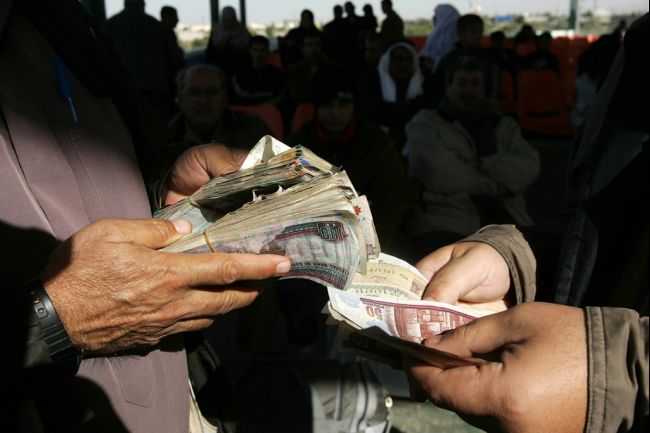CAIRO: Egypt’s bourse will reopen before the end of this week, the head of the Misr for Central Clearing, Depository and Registry told Reuters on Sunday.
The stock exchange has been shut since Jan. 27 amid a popular uprising that forced president Hosni Mubarak from office.
"There is an agreement to return to trading by the end of this week, but the day has not been specified yet," Mohamed Abdel-Salam, head of MCSD, told Reuters.
The finance minister had said Saturday that Egypt’s stock exchange will open before March 28 so the bourse is not removed from global indices.
Samir Radwan said one of the reasons for the continued closure of the stock exchange was that the situation in Egypt had "not reached the improvement that we were imagining, even though matters are improving every day."
Trading was set to resume earlier this month but was suspended again when the new cabinet was sworn in on the basis that discussions between the regulator, EGX and the new government, first, need to take place before deciding to resume trading, Beltone Financial reported.
March 28 will mark the end of the 40 business day MSCI “grace” period for the EGX to remain closed for trading, after which MSCI should enter into consultations with Egyptian regulators, authorities and investor community before taking a final decision on its exclusion, Beltone said.
Separately, the stock exchange along with Misr for Central Clearing, Depository and Registry are deciding on the technical procedures to be implemented when utilizing the Ministry of Finance’s LE 250 million fund set up to support brokerage companies.
Karim Helal, Group CEO of CI Capital, said his and other Egyptian investment banks were taking a beating because of the lack of share trading and financial uncertainty.
Analysts say the government is reluctant to reopen the bourse out of concern for the political and economic repercussions of a possible collapse in share prices and capital flight out of the country.
Egypt’s economy nearly ground to a halt during weeks of protests. Some of its main sources of foreign exchange, including tourism and foreign investment, have collapsed. Many factories continue to operate below capacity.
Officials in several of the biggest companies trading on the bourse have had their assets blocked or been charged with crimes as the government investigates corruption under the old government.
"At the end of day, there is going to be a hit. Somebody is going to have to take it," Helal said in an interview on Thursday. "Considerable damage has been done already. The longer you keep it closed, the bigger the damage."
Selling pressure
CI Capital, which had LE 12 billion ($2.03 billion) in assets under management in October, is the investment banking arm of Commercial International Bank, Egypt’s biggest privately owned bank.
Helal said the exchange sentiment turned positive after Mubarak’s resignation on Feb. 11, but this has dissipated as weeks go by and the bourse remains shut.
"My feeling then was it was not going to be a collapse and it would gradually settle. Now, after such a long closure, I can’t say the same anymore," he said.
"You’re going to have tremendous selling pressure. You have all sorts of people and companies and funds locked in for 40 days who need money. So there will be big selling pressure."
He said one of the key criteria for foreign investors was liquidity. "So if they begin to feel that this market is not really as liquid as they thought," they will sell off.
Helal said CI Capital, with its large capital and being owned by a large bank, was in a more comfortable position than many other Egyptian investment banks, but it was nevertheless suffering from the closure.
"Of course we’re hurting badly. The biggest single contributor to the revenue of all investment banks in Egypt, the big ones, at least, is from brokerage," Helal said. "And of course, there is no brokerage."
He said the crisis had put most of CI Capital’s deal pipeline on hold.
"We are just bleeding every day, like everybody else," he said. "The IPO (pipeline) is shut for now. We have still two to three private equity type transactions that are still proceeding. Whether they will close I don’t know."
In October, Helal said CI Capital had three initial public offerings, several private equity transactions and a number of bond issues in the pipeline and was planning to launch three new investment funds.
The overthrow of the government could nonetheless be great opportunity to cleanse the financial market and attract new investors, Helal said.
"The problem is the small investor has lost his confidence. The perception is that this market is manipulated for the benefit of the big guys at the expense of the small guys." –Additional reporting by Daily News Egypt



